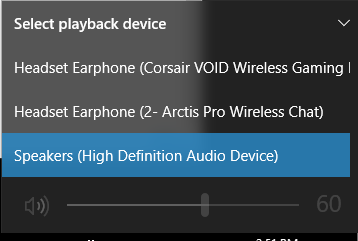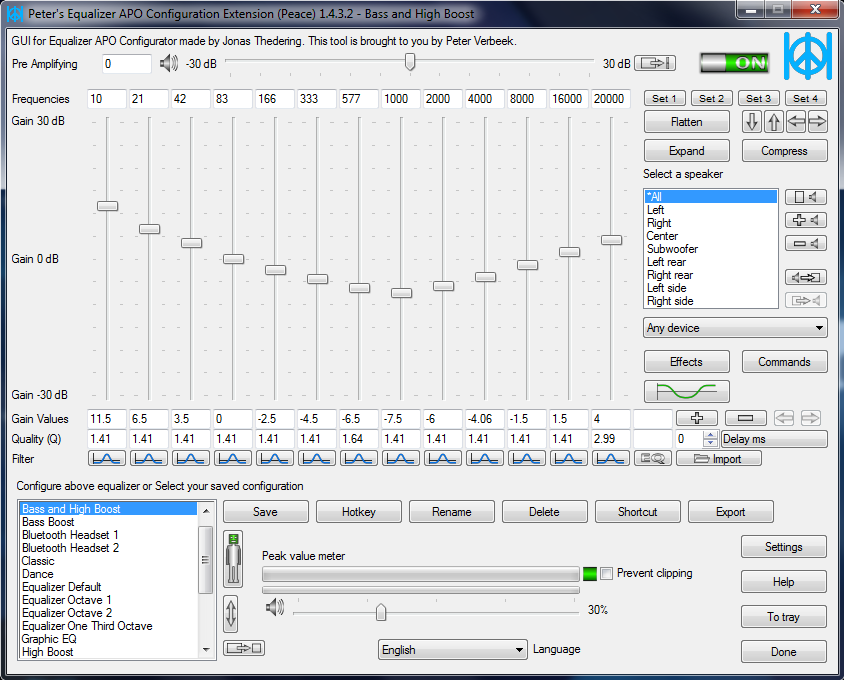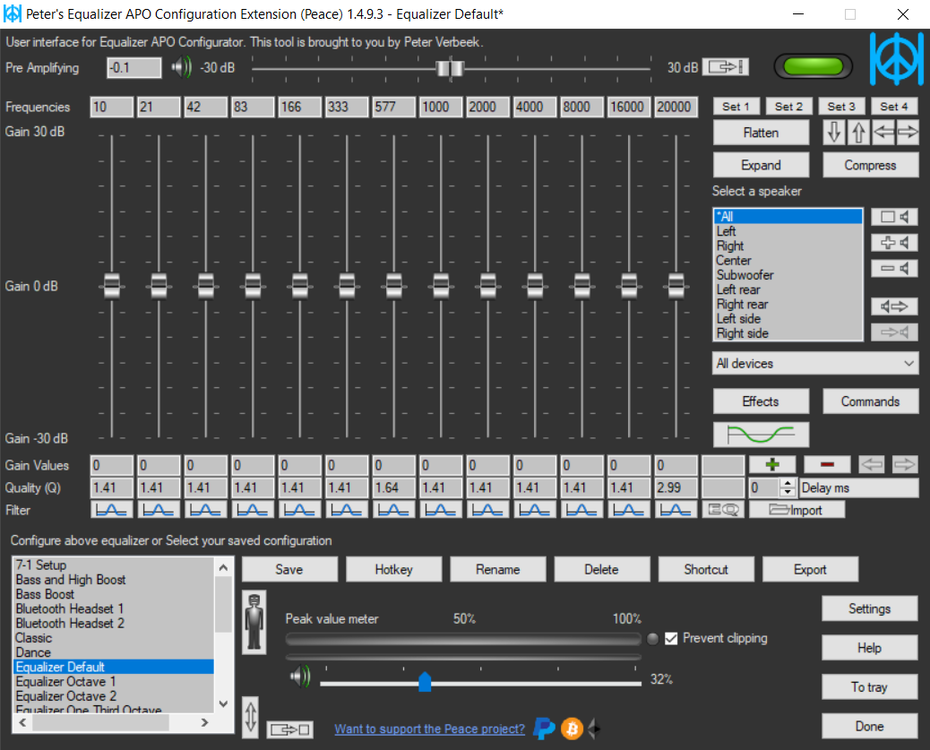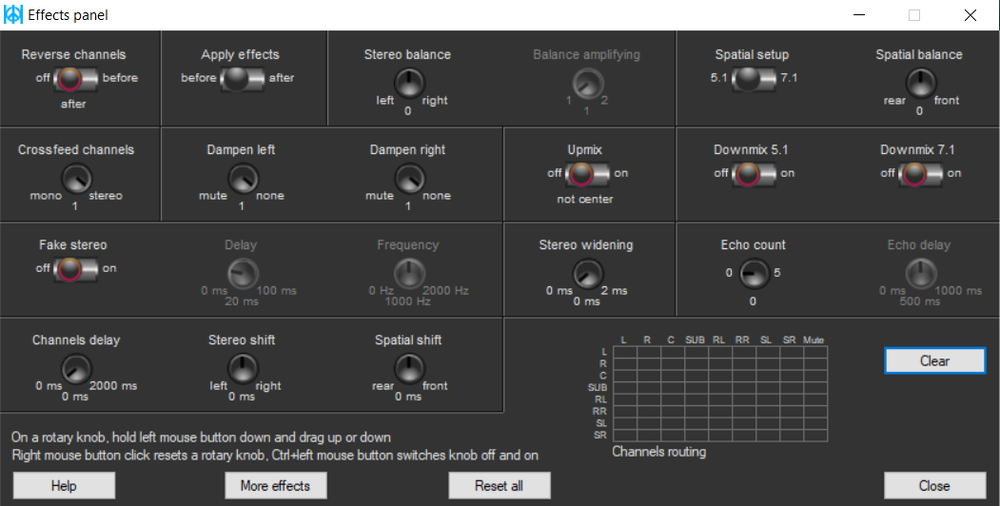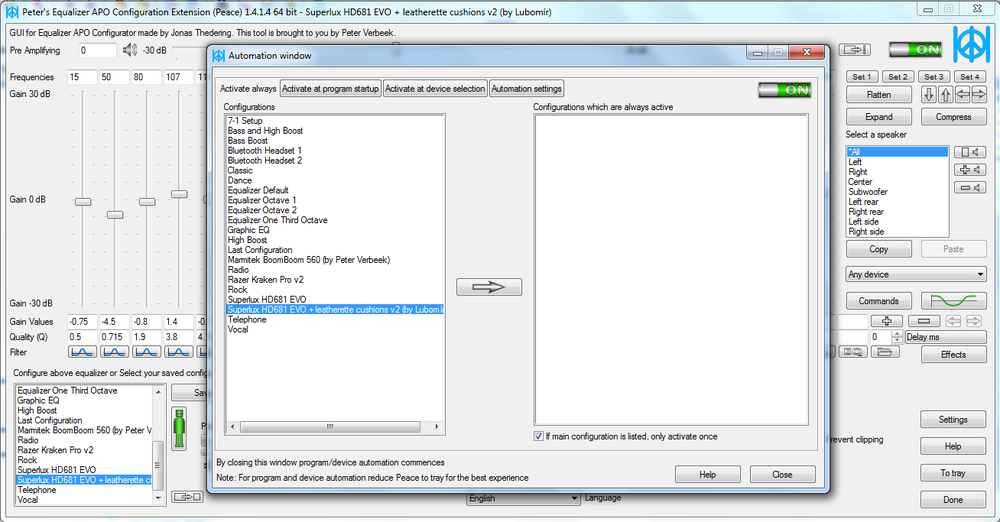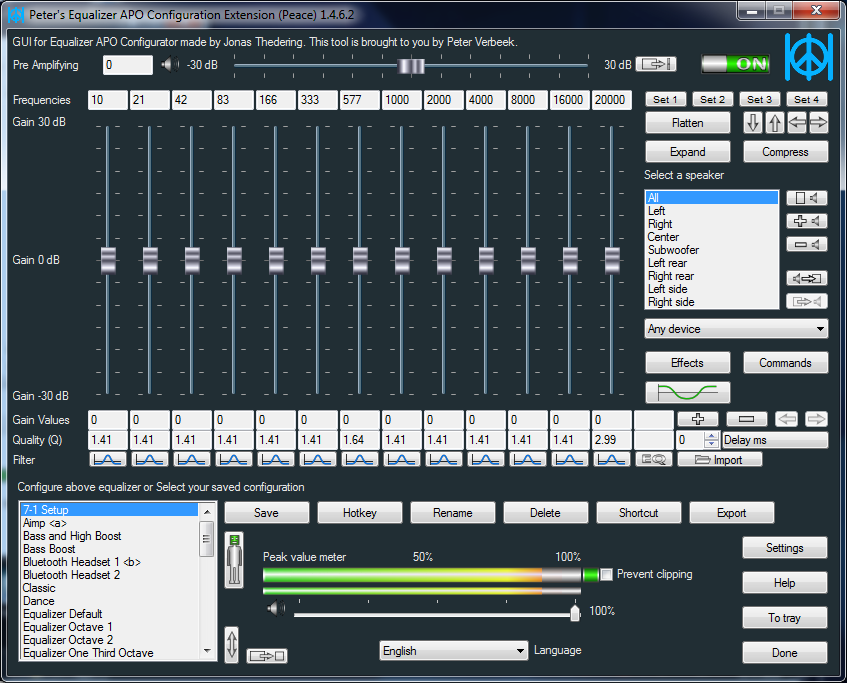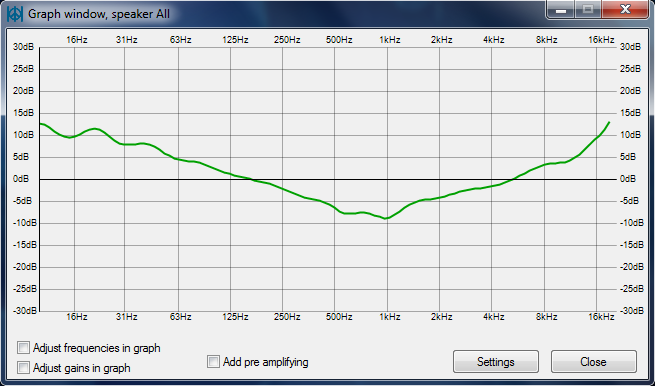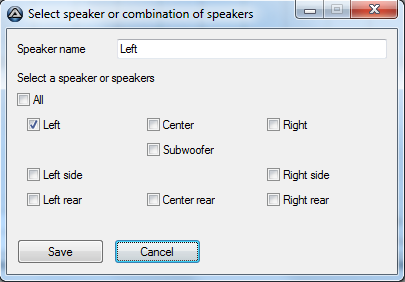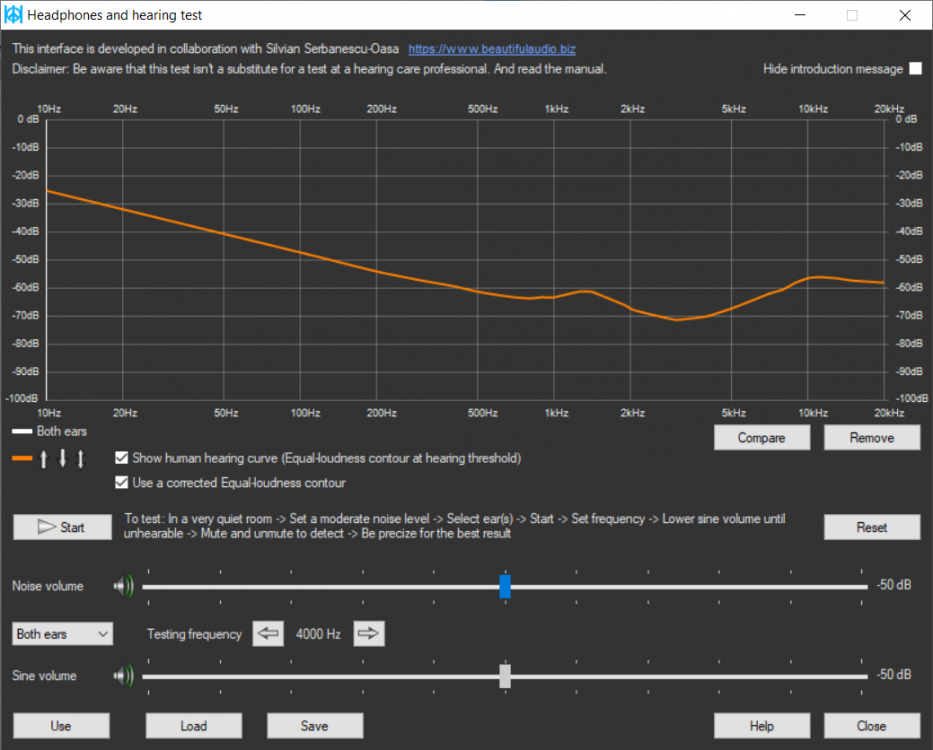Search the Community
Showing results for tags 'microphone'.
-
Today I decided to fix my problem of yelling on my headset's mic. to the point of ... coding a solution As I change the headset, the mic. don't change ( and I forget to do it manually ), so I searched the form for code and came up with the solution to my need. #include <Debug.au3> ; for _DebugArrayDisplay() #include "SetMicForPlayback.bulk.au3" ;~ Global $g_aEnumerateAudioDevices = _EnumerateAudioDevices() ;~ Global $g_aEnumerateAudioDevicesWas = $g_aEnumerateAudioDevices ;~ _DebugArrayDisplay($g_aEnumerateAudioDevicesWas, "$g_aEnumerateAudioDevicesWas") ;~ Row |Col 0 |Col 1 |Col 2 |Col 3 |Col 4 ;~ Row 0 |Playback |{34d90035-0679-4b97-b868-ddba418b989b} |{0.0.0.00000000}.{34d90035-0679-4b97-b868-ddba418b989b}|Speakers (High Definition Audio Device) |1 ;~ Row 1 |Playback |{43d508ee-19c5-4513-bd52-e1b7ba57ee82} |{0.0.0.00000000}.{43d508ee-19c5-4513-bd52-e1b7ba57ee82}|Headset Earphone (2- Arctis Pro Wireless Chat) |0 ;~ Row 2 |Playback |{a6f69bc4-f708-4a0f-bf58-995fe9d5d221} |{0.0.0.00000000}.{a6f69bc4-f708-4a0f-bf58-995fe9d5d221}|Headset Earphone (Corsair VOID Wireless Gaming Dongle) |0 ;~ Row 3 |Microphone |{a025c7e9-3655-474f-9643-8f05f1e4d591} |{0.0.1.00000000}.{a025c7e9-3655-474f-9643-8f05f1e4d591}|Headset Microphone (2- Arctis Pro Wireless Chat) |0 ;~ Row 4 |Microphone |{f9a630d2-44e9-4db5-b115-9fe7503a2ec7} |{0.0.1.00000000}.{f9a630d2-44e9-4db5-b115-9fe7503a2ec7}|Headset Microphone (Corsair VOID Wireless Gaming Dongle) |1 ;~ _SwitchToDevice($g_aEnumerateAudioDevices[4][2]) ;~ + [1]"OnDefaultDeviceChanged", [2]"0", [3]"1", [4]"{0.0.0.00000000}.{43d508ee-19c5-4513-bd52-e1b7ba57ee82}" ;~ + [1]"OnDefaultDeviceChanged", [2]"0", [3]"1", [4]"{0.0.0.00000000}.{34d90035-0679-4b97-b868-ddba418b989b}" main() Func main() If WinExists(StringTrimRight(@ScriptName, 4) & "'s hidden window") Then Exit 0 AutoItWinSetTitle(StringTrimRight(@ScriptName, 4) & "'s hidden window") Local $n, $a, $s, $b, $i While Sleep(50) If $g_aAudioSwitched[0] And TimerDiff($g_aAudioSwitched[0]) > 500 Then ConsoleWrite('+ [1]"' & $g_aAudioSwitched[1] & '", [2]"' & $g_aAudioSwitched[2] & '", [3]"' & $g_aAudioSwitched[3] & '", [4]"' & $g_aAudioSwitched[4] & '"' & @CRLF) Switch $g_aAudioSwitched[1] Case "OnDefaultDeviceChanged" $s = "" $a = _EnumerateAudioDevices() For $n = 0 To UBound($a) - 1 If $a[$n][2] = $g_aAudioSwitched[4] Then $b = StringSplit($a[$n][3], "()", 0) If UBound($b) > 2 Then $s = $b[2] ConsoleWrite($s & @CRLF) ExitLoop EndIf Next If $s = "" Then ConsoleWrite(@TAB & $s & ' = not found ?, just 1 device ?, remote audio ?' & @CRLF) Else $i = 5 For $n = 0 To UBound($a) - 1 If $a[$n][0] = "Microphone" Then If StringInStr($a[$n][3], $s) Then ; ObjCreateInterface: "Warning: This feature is experimental." $i = ShellExecuteWait(@ScriptFullPath, "/ErrorStdOut " & $a[$n][2], @ScriptDir) Switch $i Case 3 ConsoleWrite(@TAB & $s & ": apply = True" & @CRLF) Case 4 ConsoleWrite(@TAB & $s & ": apply = False" & @CRLF) Case 1 ConsoleWrite(@TAB & $s & ": apply = Crashed" & @CRLF) Case Else ConsoleWrite(@TAB & $s & ": no clue !" & @CRLF) EndSwitch ExitLoop EndIf Else ContinueLoop EndIf Next EndIf If $i = 5 Then ConsoleWrite(@TAB & $s & ' = ..have to code a "default mic" if none associated. ( you do it, I don''t have one. )' & @CRLF) ;~ AdlibRegister("did_it_work") ; ...to have some feedback while in development, but the "Sound"("Recording" tab), shows the change on the fly. Case Else ConsoleWrite("! no code written for this event" & @CRLF) EndSwitch $g_aAudioSwitched[0] = 0 $g_aAudioSwitched[1] = "" EndIf WEnd EndFunc ;==>main Func did_it_work() AdlibUnRegister("did_it_work") Local $a = _EnumerateAudioDevices() _DebugArrayDisplay($a, "_EnumerateAudioDevices()") EndFunc ;==>did_it_work SetMicForPlayback.bulk.au3 The "bulk" file has the real code, ( not mine, references are in the code ) SetMicForPlayback.au3 this is the "main()" ( the code you can read above ). Works for me on Win10 v???.???.?? ( I'm not good with updates ). Hope it helps the next guy playing TF2 as an engineer, finding a headset close to you, to tell your team color to use the teleport that goes to the enemy base to get the intel., no one listens, you get aggravated, #%#$#@$ .... PS: ..the above code misbehaves a lot and is left for the adventurous. Use the current code in the downloads section for a functional script.
- 5 replies
-
- microphone
- speaker
-
(and 2 more)
Tagged with:
-
In this post I take the opportunity to show the awesome capabilities of AutoIt and its libraries. My open source project Peace is a long running AutoIt based app located on SourceForge. It provides users with a system-wide equalizer and effects machine. It's an interface using the power of Equalizer APO, an audio processing object software. Peace has been download over 2,600,000 times by various kind of users. Amongst others it gives them possibilities like these: Hearing impaired - Amplify the gain of frequencies which are impaired. Home Theatre - Create Equalizer presets for watching movies and listening to music. Music lovers & audiophiles - Create presets for listening to music on their high quality speakers and headphones. Gamers - Enhance frequencies to get an edge over other gamers. Headphones - Improve the sound quality of cheap headphones and get the max out of expensive ones. Bass lovers - Boost low frequencies for extra bass. Voice - Make a microphone sound better and improve the voice, for instance for YouTube usage. Low audio - Boost low audio of an input source to a comfortable level. This list covers the main needs of the Peace user. Many people have contacted me over the years asking for new features and telling me how they use Peace for their (sometimes specific) needs. I was able to use AutoIt and its libraries for all of their needs. So what are the main features of Peace? Equalize your computer audio by using up to 31 sliders. Support of equalizing 9 speakers : left/right, center, subwoofer, left/right rear, left/right side. Per slider a filter can be chosen such as peak, low/high pass, shelving. The graph windows shows your equalization so you see exactly what you're doing. Apply an effect such as crossfeed simple/Jan Meier/Chu Moy, stereo balance, bass/treble, upmix/downmix, channel routing. Save presets (called configurations) and activate by mouse click, hotkey, desktop shortcut or Peace system tray. Select a target device to equalize, microphone as input can also be equalized. Automate: you can let Peace automatically activate presets on a switch to another device and another process. Peace is available in these languages: English, Czech, Deutsch, Français, Italiano, Nederlands, Pусский, Українська So who am I? I'm a Dutch programmer who happens the stumble upon AutoIt 5 years ago and created a small Equalizer interface app of less than 400 program lines with it. Nowadays Peace has grown to more than 18,000 lines as many features were added. Although Peace is open source, the program code isn't of the best possible quality. The reason being that I didn't expect it to become so popular. It caught me by supprise. I've created a Library of functions called Pal (link to forum post) which quality is up to the AutoIt community standard as counterpart to the Peace program code. I want to state here that AutoIt is a mature program language as Peace obviously shows. I wish it to be used more extensively for professional or semi-professional apps. In my view AutoIt deserves a place amongst the major programming languages for Windows computers. Regards, Peter Verbeek
- 52 replies
-
Hello all. in the process of packaging an application (Voip) and looking at trying to automate capturing the following information to add to a config.xml file: Default: Playback Device Name and Guid Example: Name: Speakers (Realtek High Definition Audio) Guid: {0.0.0.00000000}.{a46ce930-4dd3-49b5-8e8e-7c8a2fdc3925} Default Microphone Device Name and Guid Example: Name: Microphone (Realtek High Definition Audio) Guid: {0.0.1.00000000}.{cff6f838-33ce-4c2d-9f77-98f4e19e4a75} I've seen the following post by @trancexx, which gives me the Default Audit Device Name, but unsure how to get the Guid or the Microphone Name and Guid. I believe to get the Guid, I would need to use PKEY_AudioEndpoint_GUID but unsure how to code this. If anyone can assist or point me in the right direction it would be much appreciated. Cheers Subz
-
Hey forum! I'm getting close to releasing a beta version of my encrypted p2p messenger I'm coding. One feature I'de really like to implement is audio chat. I've searched through the forum, and can't seem to find any examples of capturing audio from the microphone, without writing it to a file. Capturing it to a file makes the audio very choppy, as bits and pieces get cut out between audio files. I believe at one point I saw a udf that allows capturing audio directly as a stream(that I could then send as packets across the network) Could anyone point me in the right direction, as to how to go about capturing audio as a stream of data that I could then break into packets and send? Thanks! -null Edit: There used to be an example in the BASS UDF, but I can't seem to locate it, or figure out exactly how to go about streaming audio with the included documentation.
- 7 replies
-
- streaming
- microphone
-
(and 1 more)
Tagged with:
-
Hey all, I was wondering if there is a way to "automate" the microphone in an output way. Meaning, is there a way to write a function that will force a track to be played and sent to the microphone? Basically, instead of having to say a specific thing on the microphone over and over again, is there a way to automate the microphone to send a recorded track? Not sure if what Im asking makes sense, but any help would be greatly appreciated!


